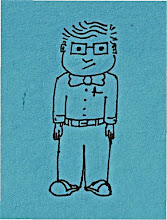When I was maybe eleven there was another kid around my age named Nick who lived on the corner. One day he came over to play with me and my friends. I didn't like him. He was new to our street, his older sister drove a Honda CRX and his mom was a single mom. I had gotten it in my head that he was a bad kid. So when he came over to play with us I threw pinecones at him. I didn't say anything, just threw pinecones. One after another after another. He started to yell, he didn't throw any back, he just yelled for me to stop it. He got angry, he was almost crying and then he went away. He didn't come over to play with us anymore, which is what I wanted.
I wish I could go back and punch myself in the face for being such a little asshole. I was an older kid on the block too, and I'm sure most of the parents thought I was a good kid, a role model. But I was cruel. I was insensitive. I was just as stupid as every other kid in the world.
Brutus is a character of high moral standing in Rome. But when he’s recruited into the conspiracy to assassinate Caesar, he lends righteousness to the cause. As Caska points out:
O he sits high in all the people’s hearts:
And that which would appear offence in us
His countenance, like richest alchemy,
Will change to virtue and to worthiness. (1:3)
When Brutus stabs Caesar, the famous line “Et tu, Brute? Then fall, Caesar” (3:1) is a recognition on Caesar’s part that if even noble Brutus is against him, then he must have deserved it.
Marc Antony admits that if Brutus can give him good reasons for Caesar’s assassination, then he will accept it.
If Brutus will vouchsafe that Antony
May safely come to him and be resolved
How Caesar deserved to lie in death,
Matk Antony shall not love Caesar dead
So well as Brutus living. (3:1)
Brutus even convinces the Roman mob that it was necessary, that Caesar was guilty of ambition, which is dangerous to the republic.
There is tears, for his love; joy for his fortune;
honour, for his valour; and death, for his ambition.
…
I have done no more to Caesar than you shall do to Brutus. (3:2)
They’re appeased until Mark Antony comes out and with his “Friends, Romans, countrymen,” (3:2) speech he turns the mob against Brutus and the conspirators. Brutus should have known that it would happen. Before the assassination was carried out, he hesitated:
Since Cassius first did whet me against Caesar
I have not slept.
Between the acting of a dreadful thing
And the first motion, all the interim is
Like a phantasm or a hideous dream:
The genius and the mortal instruments
Are then in council, and the state of man,
Like to a little kingdom, suffers then
The nature of an insurrection. (2:1)
“Genius” here means the spirit, or the mind. “The mortal instruments” are the body or guts. I think his guts told him not to do this thing and the chaos that follows Caesar’s death shows that Brutus should have listened to his mortal instruments. Cinna the poet is torn to pieces by a mob, civil war erupts.
In the end, Brutus is forced to pay for his misjudgment by thrusting himself upon his own sword and dying. He gives his life in apology, realizing to late the folly of assassination.
Caesar, now be still
I killed not thee with half so good a will. (5:5)
It was a mistake, and his death, along with the deaths of the other conspirators was an action that might set Rome right again.
I wonder if the real Brutus felt this way. Was he contrite? Maybe in real life he didn't get a chance to kill himself in redemption, maybe he never had the opportunity to apologize or make up for his mistake. Maybe it wasn't until 1599 when Shakespeare wrote the play that Brutus ever had the chance to say he was sorry. It's pretty late, but at least it got said.
Back then I even thought I was a good kid. I thought the things I did were right. I thought Nick was bad and that I was doing the right thing by keeping him away from my other friends. I needed someone to teach me a lesson.
What I'll never understand is how come Nick didn't tell his mom that I threw those pinecones at him. He should have told her and she should have talked to my parents. And I should have been forced to go apologize to him. We might have become friends afterward.
Over the Fourth of July I was in Kenosha, and I rode my dad's bike past Nick’s old house four times. I went past it on purpose every time hoping maybe he was visiting his mom for the holiday or that she would be outside working in their yard and I could ask about him. I go past that house every time I’m in Kenosha. I don't ever see anyone there. She might not live on the block anymore. We moved away in 1993. Certainly his sister’s CRX is gone. He's 30 years old now.
I'd like to tell him I'm sorry. Not that an apology would make anything better. It is a few decades late. But he deserves an apology. Yeah. He at least deserves that.

No comments:
Post a Comment